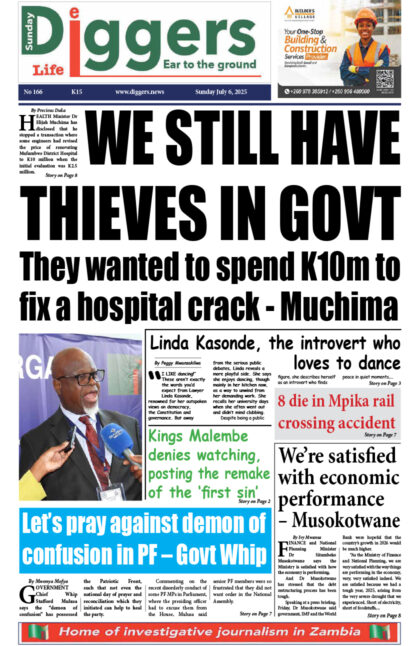The Bank of Zambia (BoZ) must maintain the Monetary Policy Rate (MPR) at 11.5 per cent and resist any attempts to adjust it upwards to avoid increasing the cost of borrowing, says the CTPD.
In a statement released, Tuesday, Centre for Trade Policy and Development (CTPD) senior researcher Bright Chizonde appealed to the BoZ’s Monetary Policy Committee (MPC) to maintain the current MPR at 11.5 per cent to avoid increasing the cost of borrowing, while ensuring that the country’s liquidity crunch is not worsened.
Last November, the MPC hiked the MPR by 125 basis points to 11.50 per cent from 10.25 per cent as a necessary move to arrest Zambia’s escalating inflation, currently at an over three-year high of 12.5 per cent, and to prevent a full-blown economic implosion.
The net effect of the increased MPR, however, meant that commercial banks’ lending rates on loan facilities equally jumped by 1.25 per cent making credit more costly.
“The CTPD would like to urge the Bank of Zambia Monetary Policy Committee to consider the broader economic situation as they determine the 2020 first quarter monetary policy decision. There is need to consider the liquidity situation, economic growth prospects and indeed the already high cost of borrowing. The Bank of Zambia should also work at harmonizing its policy decision with the recent fiscal measures proposed by the Minister of Finance, Honourable Dr Bwalya Ng’andu, during his address on the state of the economy. CTPD, therefore, advises the central bank to maintain the Policy rate,” Chizonde appealed.
“This rise in inflation would justify another upward adjustment in the Policy Rate or Reserve Ratio requirement in order to revert to single-digit inflation, towards the 6 to 8 per cent target. It should, however, be noted that increasing the Policy Rate would result in increased liquidity constraints, higher cost of borrowing and a further contraction in economic activity. This is certainly not in line with the fiscal measures aimed at stimulating growth through the private sector.”
He also stressed that maintaining the MPR at 11.5 per cent would enable fiscal space for the measures announced by Dr Ng’andu last week to take effect.
“In considering the bigger picture, the Monetary Policy Committee should at the least maintain the policy rate in order to provide space for the fiscal measures to take effect. The Minister of Finance recently outlined a number of fiscal measures aimed at improving the debt situation. These included a suspension or moratorium on contraction of selected non-concessional loans, cancellation of selected external project loans and re-scoping of selected externally-financed projects. If these measures are implemented, the kwacha is likely to appreciate and, thus, reducing the inflationary pressure,” said Chizonde.
“Furthermore, the Minister of Finance asserts that private sector activity has been stifled by liquidity constraints associated with higher debt service payments and the accumulation of domestic arrears. As the Ministry of Finance is slowly taking action to increase liquidity through the dismantling domestic arrears, the Bank of Zambia should not be taking a counter-action, such as increasing the Policy rate. Increasing the Policy rate, though justifiable on the account of higher inflation, is not consistent with fiscal policy and would negatively affect Zambia’s growth prospects.”



















